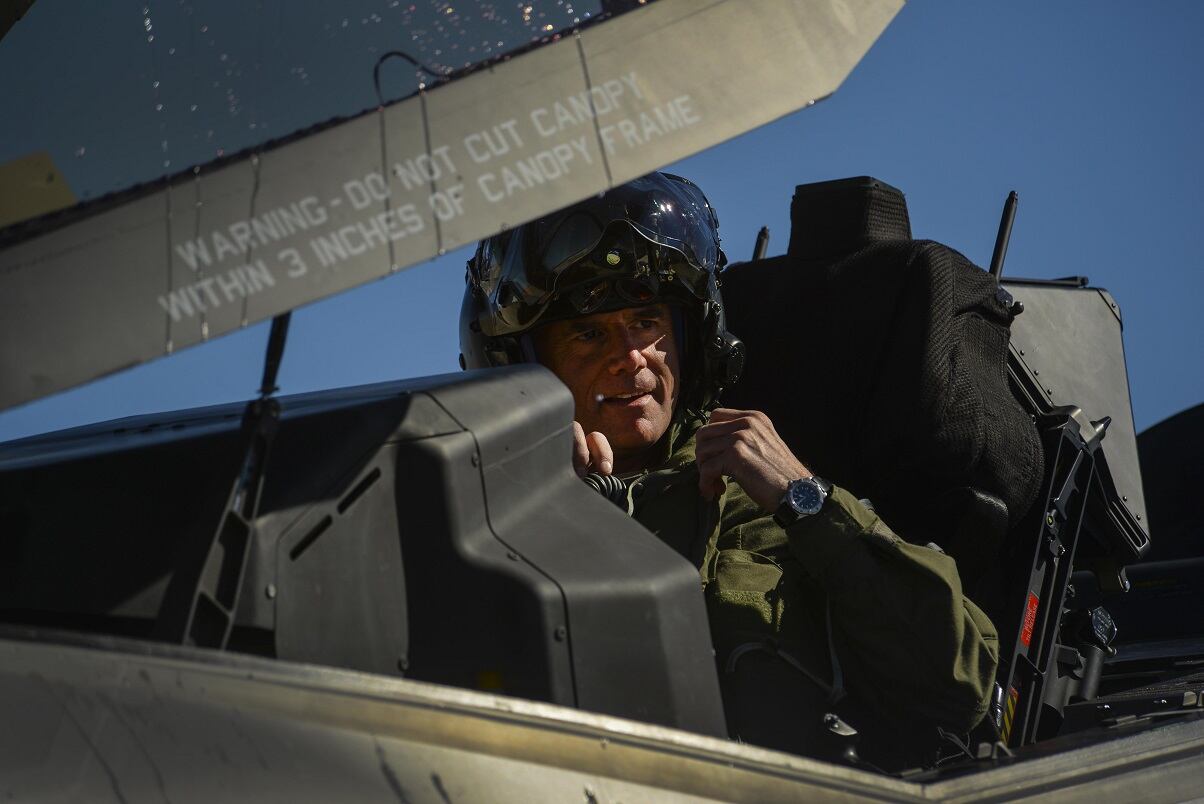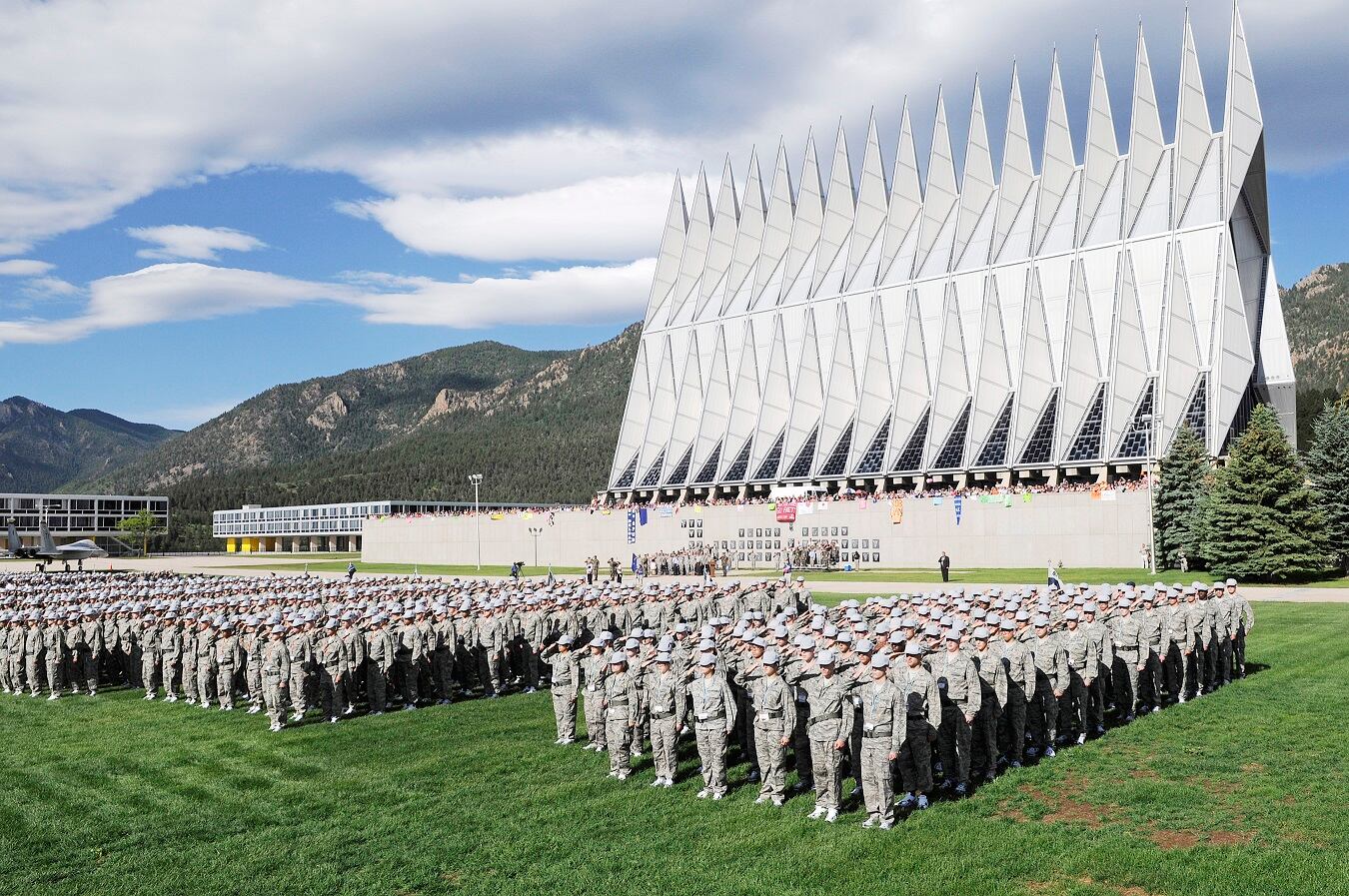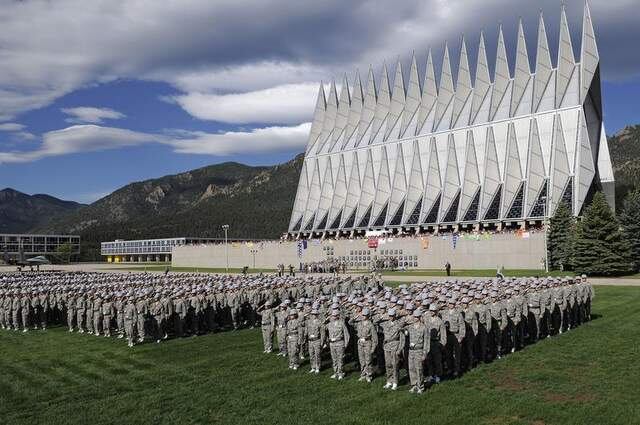Lt. Gen. Jay Silveria has flown combat sorties over the Balkans and Iraq. He’s served as the vice commander at Bagram Air Base in Afghanistan. And he played a central role managing the war against the Islamic State as deputy commander of U.S. Air Forces Central Command.
Now, Silveria has returned to his alma mater for the first time in more than three decades as the new superintendent of the Air Force Academy. And he hopes to bring his experience ― and knowledge of the way war has evolved ― to help train the next generation of Air Force officers.
“I’m going to do everything I can to talk to the cadets about my experience, and about what they can expect in a modern battlefield,” said Silveria, a 1985 graduate of the academy who became superintendent Aug. 11. “They will enter a complex battlefield of modern warfare that is connected in a way that we have never seen before. … We need to teach the cadets to think that way.”
Silveria spoke to Air Force Times this week during the Air Force Association’s Air, Space & Cyber conference in National Harbor, Maryland.
Silveria said that during his time in the Middle East last year, he saw a historically unprecedented level of interconnectivity between platforms and capabilities, including in space and cyberspace, with kinetic and non-kinetic systems.
That’s only going to continue to increase in the coming years and decades, he said.
The academy needs to challenge its cadets to learn critical thinking, Silveria said, and that will include studying the humanities.
“A classic liberal arts education … is what we need to make cadets that are thinkers,” Silveria said. “While the science, technology, engineering and math, the STEM, is important, it is not also sufficient to make the cadet that can think in a modern battlefield. So they need the humanities as well as the science and math.”
Brig. Gen. Andrew Armacost, the academy’s dean of the faculty, is now reviewing the curriculum to see what adjustments are needed to give cadets more opportunities to study today’s crucial subjects.
Cyber, for example, is a fast-growing area that will continue expanding. Three years ago, Silveria said, only three cadets went into the cyber career field after graduating. This year, there were 27.

Growing more pilots
As the Air Force faces an alarming pilot shortfall ― especially those flying fighter aircraft ― Silveria said the academy is working to help produce more pilots.
In 2017, 388 graduating cadets became pilot trainees, but in 2018, he said that is projected to grow to at least 450 ― and “we have every reason to believe that there’s going to be even more slots available.”
Silveria, who has more than 3,900 hours flying aircraft such as the F-15, F-35 and HH-60 Pave Hawk, hopes his own history and experience can help him serve as an example.
“My job is to inspire those cadets to want to be pilots,” he said.
Maintaining momentum
Silveria also said he wants to maintain the momentum left by his predecessor, Lt. Gen. Michelle Johnson, on extensively renovating the campus’ buildings, overhauling its information technology infrastructure, and improving programs to stop sexual harassment and sexual assault at the academy.
Next year, the academy will begin a four-year, $65 million renovation of its iconic chapel, the most visited man-made structure in Colorado. In fiscal 2020, the academy will launch a seven-year, seven-phase project of major renovations to the Sijan Hall dormitory.
The academy is also teaming up with Colorado Springs to build a visitor’s center at the North Gate area. The new visitor’s center will replace the academy’s current one, which Silveria said is too small to handle the increase in tourists to the academy, and serve both the academy and Colorado Springs.
The academy will also be renovating its Cadet Field House, which houses its basketball arena and indoor hockey rink, locker rooms in Falcon Stadium, and library.
The work is long overdue, Silveria said, since many of the academy’s buildings haven’t been renovated since they were built in the 1950s, and many are reaching the point where significant repairs are needed at the same time.
The academy also is now a few months into its five-year, $26 million IT overhaul, moving from a system designed in-house to the Blackboard learning management system, which is used by many other universities nationwide.
But the academy is different from other universities in significant ways, Silveria said, in that it manages its cadets’ lives down to when they eat, what they wear, and their schedules. So its learning management system needs to be able to handle all that scheduling, and the second phase of the IT overhaul, which is now beginning, will cover that.

Sexual assault prevention
The academy will continue to strengthen its sexual assault prevention and response programs, Silveria said, adding that it’s important to get cadets to talk and think about the subject in terms of their future roles as leaders of airmen.
“They don’t have to just adhere to the standards about sexual harassment and sexual assault,” Silveria said. “They have to then go out and be officers and commanders, and they have to go out and teach, as well as handle the culture of the organizations … that they’re responsible for. That is the next step in building that next level of awareness.”
Over the last three years, the academy has also been trying to take a positive approach to sexual assault prevention by teaching cadets how to handle a healthy relationship and what it looks like, Silveria said, instead of focusing only on the consequences for a cadet who crosses a “red line.”
Silveria said that approach works because cadets come from a wide variety of socioeconomic backgrounds, family structures, and different types of upbringings.
“In a lot of cases, they don’t know what a healthy relationship should be,” Silveria said. “And so it’s important not just to teach them the standards of what’s appropriate or inappropriate, but also teach them how to act as adults, and how to have a healthy relationship.”
RELATED

The academy’s sexual assault prevention efforts came under fire in June ― before Silveria arrived ― when it removed members of the civilian staff in its Sexual Assault Prevention and Response Office and opened up what Silveria called an expansive, months-long commander-directed investigation into the office. The results of that investigation are still under review, and Silveria would not go into detail on what prompted the investigation and what it found.
Silveria said the academy got help from other offices to ensure cadets continued to get the care they needed, and that there was never an interruption in their care.
“This wasn’t about care for the cadets, this was about the conduct of individuals in the SAPR office,” Silveria said. “The cadet care, and what they received, and their access to care, and availability of care, their treatment is not what is being investigated. It’s the conduct of the individuals within the office that worked there that is being investigated.”
Silveria said the academy is now working to hire new personnel to replace some of those SAPR office employees who were under investigation.
“One incident is too many,” Silveria said. “So we have to continue to raise awareness, provide support, teach, educate, develop these cadets into officers. But it’s certainly a topic that we will never be able to rest on.”
Stephen Losey is the air warfare reporter for Defense News. He previously covered leadership and personnel issues at Air Force Times, and the Pentagon, special operations and air warfare at Military.com. He has traveled to the Middle East to cover U.S. Air Force operations.




